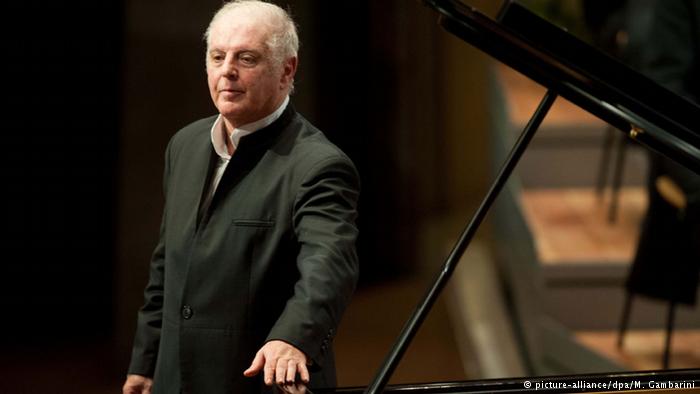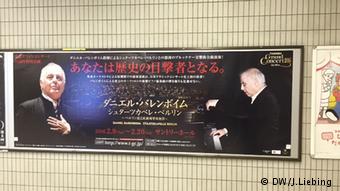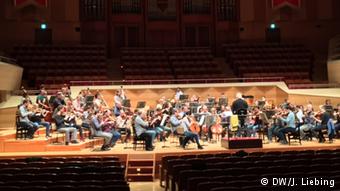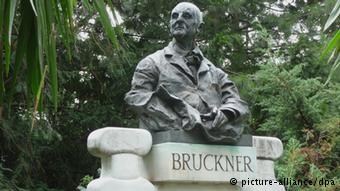Music
Bruckner cycle in Tokyo: Why Japanese Western classical music love
For the first time in Japanese music history are in Tokyo now, all nine symphonies by Anton Bruckner in a cycle to hear. Daniel Barenboim led them with his Staatskapelle Berlin.

“It was unique and poignant,” says Toshiaki Harada, an English teacher at the Showa University in Tokyo. He has, for the equivalent of more than 1700 Euro a Ticket for all nine Bruckner concerts are purchased – not just a little money. However, classical music is the Japanese value and expensive. Even the cheapest ticket for a concert costs about 100 Euro. Also, the critic Atsuya Funaki, the age of twelve after a performance of Brahms’ “German Requiem” with the first word “Blessed” has decided to learn German, is very satisfied: “A perfect Bruckner cycle with a highly-motivated orchestra.”
Barenboim in Japan: valued and revered
Barenboim conducts this Bruckner cycle is very energetic, but he can also withdraw into its Zeichengebung, because he and his orchestra after an intensive rehearsal process – even during the tour of Japan – can rely on. At some performances, he plays himself in the first part of each of a piano Concerto by Mozart. Barenboim’s recent play is more romantic and marked it very personally. The Staatskapelle and your boss are in the more than twenty years of their collaboration in a single unit. Hardly any other orchestra instantly the symphonic cosmos of Anton Bruckner so convincingly present.

Advertising for the Bruckner cycle in the Tokyo subway station
For the first time in the history of Japan were now the nine symphonies of Anton Bruckner performed in cycle. That it came to be, is, among other things, the 75-year-old Professor Isao Hirowatari, who over several decades as a concert promoter took effect, and today at the Showa University of cultural management are taught. “I knew that Daniel Barenboim with Japan had completed, because he is suffering badly from jet lag, but the idea of all the Bruckner symphonies, perform, convinced him,” says Hirowatari in the DW interview.
Audience celebrated Bruckner cycle
The romantics Bruckner, an ardent admirer of Richard Wagner and his contemporaries with his exuberant symphonic works during his lifetime, had difficulty, even today, mostly on two or three of his symphonies is reduced. “It was clear for us that such a cycle is a risk,” says Shintaro Tanaka, one of the organizers. But the Japanese audience is impressed by Bruckner and by Barenboim: After the concerts, thanks to with not only a twenty-minute applause and Standing Ovations, there are also dozens of classic and Barenboim Fans at the Bühnenausgang in a Parking garage and wait patiently in a queue on the Maestro. The turn is also to patiently sign autographs.

Staatskapelle Berlin during the rehearsals in the concert hall, the Suntory Hall in Tokyo
In a sample of those attending were allowed, the tickets for all nine concerts had acquired, says Daniel Barenboim, why he stands for the chronological sequence of the Bruckner symphonies has decided. Thereby, the conductor, could both the audience as well as musicians the compositional development of Bruckner’s understand that it is a shared journey. “If you have two or three symphonies, Bruckner’s experienced, you can hear the similarities – but if you have the complete cycle of listen, to recognize the differences.”
European classical music: From many reasons, popular
The classical music from Europe is popular in Japan, explained the Japanese interpreter Akiko Matsuda, the been Herbert von Karajan, Carlos Kleiber, and other great conductors has coached, so that the school music lessons after the Second world war entirely to Western music have changed. Japan’s rich musical tradition was, however, almost has been spilled. Only gradually remember back to the ritual court music of Japan.

The Austrians Anton Bruckner is one of the most innovative Symphony of the 19th century. Century
Professor Hirowatari laid the beginning of the love of the Japanese for Western classical music into the last third of the 19. Century. During the Meiji Revolution, a Revolution from above, opened up the previously isolated Japan to the West, primarily for economic reasons, but also culturally. The first teacher for classical music came from Germany, and so this Land was to be a role model.
“The Japanese love German and Austrian classical music, because they are so emotional,” says, in turn, Matthias glander trade, Solo-clarinetist of the Staatskapelle Berlin. “After all, is the daily life here so extraordinarily regulated.”
Classical concerts without coughing and throat clearing
Daniel Barenboim, already sixteen Times in Japan appeared both as a Pianist and as a conductor, this year celebrates its 50-year-old Japan – anniversary. He praises the earnestness and attention with which the Japanese audience of the music to dedicate. Here was a respect there, in Europe are now rarely found. In fact, listening to the audience is highly focused, and quiet. Anyone with a cold, goes to the doctor and not come to the concert.
After the conclusion of the 9. Symphony of Bruckner wants the applause is never ending. For Bruckner, it is the “farewell to life”, for the Staatskapelle Berlin, the farewell to Tokyo.
